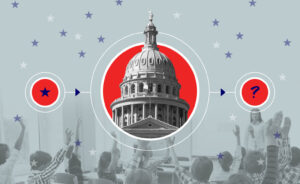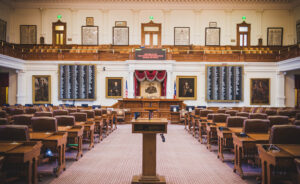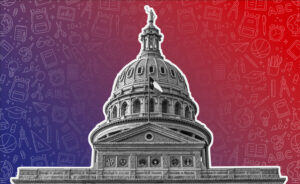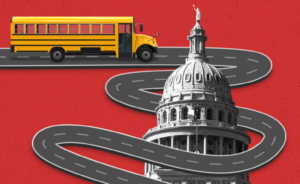Texas Educators and the 2024 Election
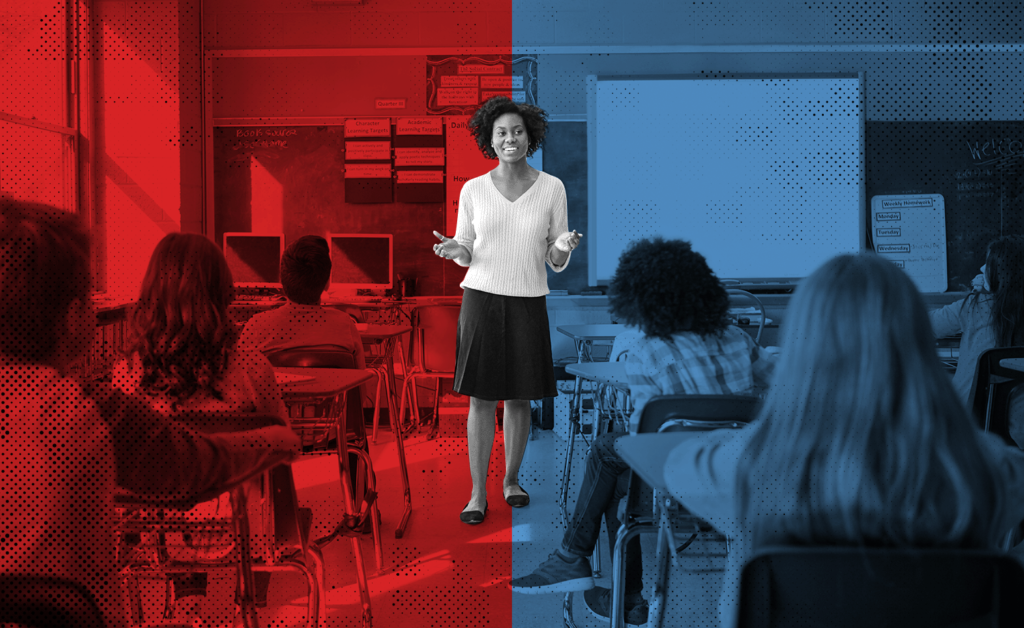
Election season 2024 is in full swing, and it will surely be a popular discussion topic during the upcoming school year in the classroom, breakroom, and within the community, both online and in person. You might wonder how to approach these conversations. What is your responsibility as an educator? What are your First Amendment rights? And if you want to be politically involved, what is “legal” at school?
Developing knowledgeable citizens
It would be easy to say, oh, just ignore elections in the classroom in order to avoid issues, but no less than the Texas Constitution charges public educators with “developing knowledgeable citizens for the preservation of liberties and rights for the common good” (Tex. Const. Art. VIII, Sec. 1).
This tenet of a knowledgeable citizenry is echoed in:
- The Texas Essential Knowledge and Skills (TEKS), which require lessons on citizenship, civic engagement, and voting (Social Studies, K-12); and
- The rationale for the creation of the Texas Educators’ Code of Ethics, which applies to most school employees and notes that educators have accepted a position of public trust and should measure success by the progress of their “students realizing their potential as effective citizens” (19 Tex. Admin. Code § 247.1(b)).
But how you go about developing a knowledgeable electorate is far from clear-cut.
First Amendment protections and limits
Public school educators and personnel do not have unfettered free speech rights in the workplace. A public school’s interest, such as an effective learning environment, may be weighed against an educator’s right to free speech. A school employer may take negative employment action when an employee speaks as a public employee rather than as a private citizen regarding a matter of public concern. However, if an employee’s private speech is not in the scope of ordinary duties and does not seek to convey a government-created message, the employee’s speech may be protected.
When performing job duties, such as providing instruction or attending meetings, public school employees represent the government, and the government can limit employee speech. Schools can require that employees remain neutral or act without bias when it comes to controversial topics. Schools may also limit speech if it is too disruptive to the learning environment, even if it touches on matters of public concern. If the speech interferes with the school’s interests due to parent complaints, requests for student removal, or negative discussion within the school community, a school may limit speech and take negative employment action.
The law imposes a balancing test requiring public school employees to consider whether any speech:
- Is part of the employee’s job duties and responsibilities;
- Is shared during work or non-work time;
- Conveys any government-created message;
- Addresses a matter of public concern or is something personal to the employee; and/or
- Is disruptive to the learning environment.
What are my rights as an educator?
As an educator, you have the right to participate in community, political, or other organizational activities without pressure or coercion from your employer or colleagues and may not be required to participate in political affairs. In addition, you have no right to interfere with a colleague’s exercise of political, professional, or citizenship rights and responsibilities.
Educators also should not knowingly spend or authorize the spending of public funds, which include school resources, for political advertising. According to the Texas Election Code, political advertising is any paid communication that supports or opposes a candidate or measure. This includes publications and periodicals, radio or television broadcasts, pamphlets, fliers, billboards, signs, bumper stickers, or similar forms of written or online communication. Political advertising does not include individual emails or text messages; however, it does apply to mass emails and text messages involving an expenditure of funds.
Furthermore, educators can engage in political speech and activity in their personal lives as long as the conduct does not cause a significant and serious disruption at school. However, educators should not in their professional capacity attempt to influence a voter to vote in a particular manner or not to vote at all. In fact, the Texas Educators’ Code of Ethics specifically states that educators should not use institutional or professional privileges for personal or partisan advantage.
How do I protect myself?
As an educator, when it comes to civic and politically minded communications or interactions on the job, remain neutral.
- Stick to the TEKS, approved curriculum guidelines, and related materials regarding lessons or classroom discussions.
- Check in with your administration for questions about a topic, assignment or how to set up a debate or mock election.
- Cover candidates and issues objectively in lessons without sharing your opinion or showing any political bias.
- Ensure discussions remain civil and respectful. Be prepared to redirect conversations neutrally without penalizing any student if they get heated.
- Encourage student voting in a nonpartisan manner.
- Avoid using school resources, including work time, when engaging in personal political activities. Only use work email for work purposes.
- Do not pressure students regarding any candidate or measure. Keep professional and personal speech separate, being mindful of work and non-work time. Consider whether any speech may be disruptive to your school community.
- Only initiate persuasive communications about a particular party, candidate, or ballot measure that are aimed at colleagues or non-student community members when you are off duty.
- If you choose to respond to a political question initiated by a colleague or community member, be clear in your response that you are speaking in your personal, not professional, capacity.
- Remember that speaking in your personal capacity does not require you to conceal the fact that you are an educator or which district or school you work in.

